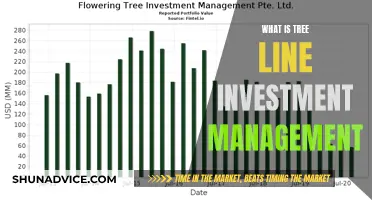
Unit trusts are a type of investment that pools money from various investors to create a diversified portfolio of assets. These assets can include stocks, bonds, mutual funds, commodities, and more. Unit trusts are typically professionally managed, with fund managers conducting research, selection, and portfolio adjustments on behalf of the investors. They are usually included in professionally managed portfolios, offering flexibility and helping investors weather market storms. Unit trusts are accessible and affordable, with a low minimum investment amount, and provide investors with the opportunity to buy and redeem units at any time. However, they come with certain risks, and investors can lose a substantial amount of money in certain situations. Fees and charges associated with unit trusts can also reduce investment returns over time.
| Characteristics | Values |
|---|---|
| Investment Objective | Capital growth or income generation |
| Investment Style | Focused on a theme or geography |
| Investment Vehicles | Stocks, bonds, mutual funds |
| Investment Risk | Similar to other investments |
| Investment Returns | Depends on asset type and historical performance |
| Investment Horizon | Medium to long-term |
| Investment Accessibility | Low entry level, open-ended |
| Investment Flexibility | High |
| Investment Management | Full-time fund managers |
| Investment Fees | Percentage of investment, management fees, transaction fees |
What You'll Learn

Unit trusts are open-ended
Unit trusts are funds managed by professionals. This means that, unlike buying individual stocks, where investors study the market to make informed choices, unit trusts are managed by full-time fund managers who do the research, selection, and portfolio adjustments for investors. Depending on the mandate, these professionals are continually looking at which securities to buy and sell, given the overall market outlook, as well as rebalancing the fund's portfolio at regular intervals.
Unit trusts are usually included in professionally managed portfolios that offer flexibility, among other benefits. A well-diversified investment portfolio can help investors weather the storms of the market. By diversifying, investment risk can be managed without necessarily holding back potential investment returns. Building an investment portfolio from scratch with securities (e.g. stocks and bonds) can be very tedious for the individual investor. It often requires time-consuming research and rigorous stock picking, which can be a hassle and not very suited to investors who are new or have busy schedules.
Unit trusts are a type of investment that is easily accessible and affordable for those just starting their investment journey. Unlike buying into a single company stock, a unit trust puts investors' money in the hands of a professional fund manager who pools their money with other investors. The fund manager then uses this pool of funds to invest in various asset classes, such as cash, bonds, shares, commodities, and more on the stock market on the investors' behalf. This fund is then split into smaller units that individual investors can buy.
Diverse Investment Portfolios: Benefits and Risk Management
You may want to see also

They are managed by professionals
Unit trusts are managed by professional fund managers who make investment decisions on behalf of investors. These fund managers are experienced industry professionals who have undergone the necessary training, background checks and certifications to ensure that investment decision-making is structured and based on sound investment principles. They are full-time managers who conduct research, selection, and portfolio adjustments for investors. Depending on the mandate, these professionals are continually looking at which securities to buy and sell, given the overall market outlook, as well as rebalancing the fund's portfolio at regular intervals.
Unit trusts are open-ended, meaning that investors can buy and redeem units at any time, making them fairly liquid. They are also easily accessible and affordable for those just starting their investment journey. The fund manager invests in various asset classes such as cash, bonds, shares, commodities and more on the stock market. The fund is then split into smaller units that individual investors can buy.
The distribution of dividends is typically managed by the fund manager and may be done on a quarterly, half-yearly, or yearly basis, depending on market conditions and investor demand. Trustees are also assigned to ensure that the fund manager operates according to the fund's investment goals and objectives. They often act as fiduciaries, protecting the best interests of the beneficiaries.
Unit trusts are not without risk, however. They are not principal or capital-guaranteed, and an investor may lose a substantial amount of money in certain situations. The risks of investing in the fund are described in the product offering documents, such as the prospectus and the product highlights sheet. Fees can also reduce returns over time. It is essential to consider the risk profile, investment horizon, and financial goals before choosing any investment option.
ESG Investing: Ignore It and You'll Miss the Boat
You may want to see also

Unit trusts are not capital-guaranteed
Unit trusts are unincorporated mutual funds that pass profits directly to investors rather than reinvesting in the fund. They are established under a trust deed, with the investor as the beneficiary. The fund manager may invest in bonds, shares, or other securities on the stock market, and the fund is divided into units that investors purchase.
The price of each unit is based on the fund's net asset value (NAV) divided by the number of units outstanding. The NAV is usually computed daily to reflect changes in the prices of the investments held by the fund. This means that the value of a unit trust can fluctuate, and there is a risk that the value may decrease.
While unit trusts can provide access to a diversified portfolio of assets, they may also include financial derivatives, which carry the risk of the provider defaulting. Additionally, fees associated with unit trusts can reduce returns over time, further impacting the overall value of the investment.
It is important for investors to understand the risks associated with unit trusts and to carefully consider their risk appetite and financial goals before investing. While unit trusts offer the benefit of professional management and diversification, they do not guarantee capital preservation.
Safe Investments Yielding 5%: Where to Invest?
You may want to see also

They can be used to generate income
Unit trusts are a type of investment that pools money from various investors to create a diversified portfolio of assets. These assets can include stocks, bonds, shares, commodities, and other securities. One of the benefits of investing in unit trusts is that they can provide income generation in addition to capital growth.
When you invest in a unit trust, you buy units of the fund, which represent your proportionate ownership of the underlying assets. The fund is managed by a professional fund manager who invests in various assets on your behalf. The fund manager's goal is to maximise returns and minimise risk by diversifying the portfolio.
Unit trusts are typically considered a medium to long-term investment, and the income generated can vary depending on the performance of the underlying assets. The distribution of dividends is usually managed by the fund manager and may be done on a quarterly, half-yearly, or yearly basis, depending on market conditions and investor demand.
The income generated from unit trusts can provide a steady stream of cash flow for investors. This can be especially attractive for those seeking regular income, such as retirees or those saving for a specific financial goal. By investing in a unit trust, investors can benefit from the expertise of professional fund managers who actively manage the portfolio to maximise returns.
It is important to note that while unit trusts can provide income generation, there are also risks involved. The unit value or income may decrease, and there is no guarantee of principal protection. Therefore, it is crucial for investors to carefully consider their risk appetite and investment objectives before investing in unit trusts.
Robinhood Investing and Portfolio Management: A Beginner's Guide
You may want to see also

Unit trusts are easily accessible
Unit trusts are open-ended, meaning that investors can buy and redeem units at any time, making them fairly liquid. They are also flexible, allowing investors to put more money in or take money out whenever they want. This liquidity and flexibility, along with the ability to invest in diverse assets, are among the factors that make unit trusts a popular investment option.
Unit trusts are available in many regions, including Guernsey, Jersey, Fiji, Ireland, New Zealand, Australia, Canada, Namibia, Kenya, Singapore, South Africa, the U.K., the Isle of Man, and Malaysia. They are also known as "authorised funds" in Singapore and "recognised funds" for foreign funds.
Unit trusts are typically purchased from the Fund Trust itself or one of its affiliates. The price of each unit is based on the fund's net asset value (NAV) divided by the number of units outstanding. The NAV is usually computed daily to reflect changes in the prices of the investments held by the fund.
It is important to note that while unit trusts are easily accessible, they are not without risk. As with any investment, unit trusts can carry risks such as liquidity risk and the potential for the unit value or income to decrease. It is essential to consider the risk profile, investment horizon, and financial goals before choosing any investment option.
Nifty Bees: A Safe Investment Bet?
You may want to see also
Frequently asked questions
A unit trust is a type of investment that pools money from various investors to create a diversified portfolio of assets. These assets can include stocks, bonds, shares, commodities, and more. The fund is then divided into units that investors can buy.
A unit trust is managed by a professional fund manager who makes investment decisions on behalf of the investors. The fund manager pools the money from investors and invests it in various assets according to the fund's investment goals. The value of the fund increases or decreases over time, and investors share the profits or losses accordingly.
Unit trusts offer several benefits, including diversification, professional management, accessibility, and flexibility. By pooling money from multiple investors, unit trusts provide access to a wider range of assets, reducing risk. Unit trusts are also managed by experienced professionals, making them suitable for those new to investing.
As with any investment, there are risks associated with unit trusts. The value of the units may decrease, and an investor's principal is not guaranteed. There may also be liquidity risk, where certain assets within the fund may be difficult to sell quickly at favourable prices. Fees and charges associated with unit trusts can also reduce returns over time.
When choosing a unit trust, it is important to consider your investment goals, risk appetite, and financial objectives. Research the fund manager's track record and investment style to ensure it aligns with your goals. Understand the fees and charges involved, and assess the fund's benchmark and past performance. Diversifying your investments across different asset classes, regions, and sectors can also help reduce risk.







